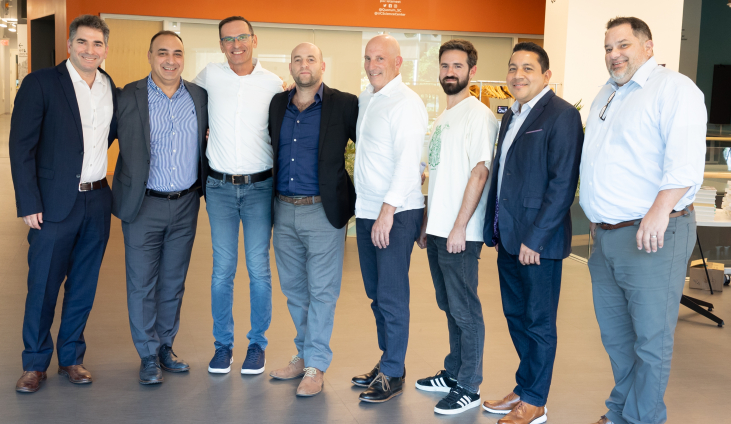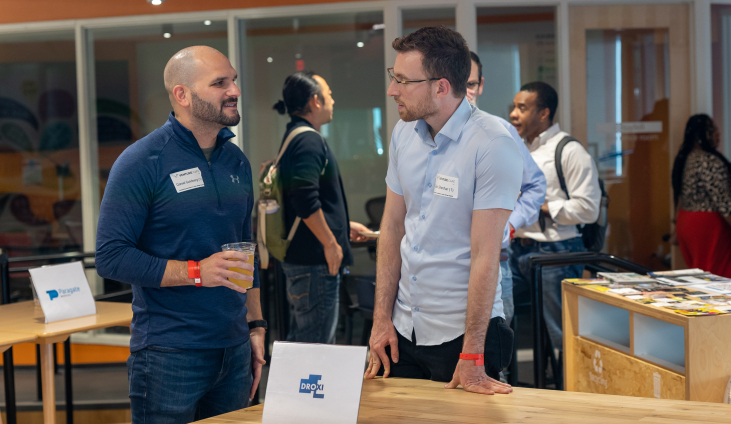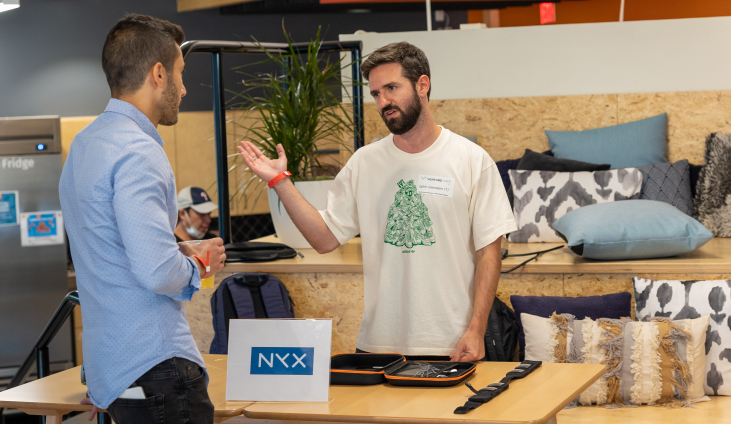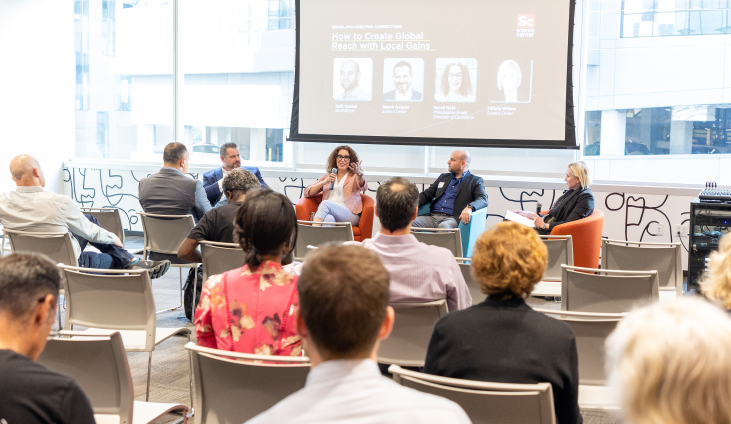Israel has more startups and more unicorns per capita than anywhere else in the world. It ranks fifth in the world index of healthcare innovation and in 2020, yielded a 55% year-over-year increase for health tech firms with a record $2.5 billion in fundraising.
Despite these impressive stats, the US healthcare market remains difficult to access and navigate for global companies. But, through partnerships with leading US and Israeli healthcare systems, technology hubs, and government entities, the Science Center is cultivating top Israeli health technology startups for commercialization in the US market.
Last week the Science Center welcomed a cohort of Israeli healthcare companies to Philadelphia in partnership with IN-VENTech. Backed by Haifa Municipality, hiCenter and Haifa Economic Corporation, IN-VENTech supports and promotes the growing innovation ecosystem in downtown Haifa, Israeli’s third largest city.
The visit to Philadelphia was the culmination of a seven-week US Market Access training program focused on investor discovery and developing partnerships in Philadelphia and other U.S.-based R&D organizations.
“It’s been an eye opener for us,” says Rami Shacour, Co-founder & CEO of Innosphere, a medical device company developing brain stimulation treatments for cognitive disorders, focusing on ADHD. “Not just in respect to the Philadelphia healthcare ecosystem, but the entire US healthcare system – systems.” That small distinction, the singular turned plural is often at the heart of the challenge many global companies encounter when expanding into the US market.
Healthcare delivery in the US isn’t uniform – it’s contingent on a patient’s location, insurance, and access, with a much broader scope of potential customers and patients. Add policy and shifts in government funding to this mix and any nascent startup can get lost in the maze of the US healthcare system. The Science Center’s US Market Access program is helping Israeli companies navigate these nuances as they prepare to scale beyond their borders.
“It wasn’t just the information the Science Center shared, but the connections they were able to make that made this trip worthwhile,” says Rami. “We expected the classic ‘meet the investors’ road show, but this program introduced us not only to investors, but all the stakeholders involved in the healthcare system which was even more valuable."
The participating companies already had traction in Israel, having each raised between $1.5 and $6M in non-dilutive and equity capital. They have Israeli customers, revenue and validated technologies, which makes them prime to set their sights on the US market.
In the six weeks leading up to their US visit, the companies learned about the US healthcare market and regulatory issues including payors, insurance, and clinical trials. This was followed by investor discovery exercises and level-setting expectations.
Upon their arrival in Philadelphia, the founders had an opportunity meet with healthcare providers like Independence Blue Cross, academic and research institutions like Penn and Villanova, and meet with local investors.
The model will be replicated with other organizations and healthcare systems in Israel to increase Israeli access to the US healthcare market and increase US access to innovation healthcare solutions.
So what’s next for these Israeli companies?
“I’m already scheduling my next flight back,” commented Gadi Shenhar, CEO and Co-founder of Droxi, a healthcare technology company developing an AI tool to help primary care physicians reduce the amount of time spent on non-patient-facing tasks and improve the quality of care.
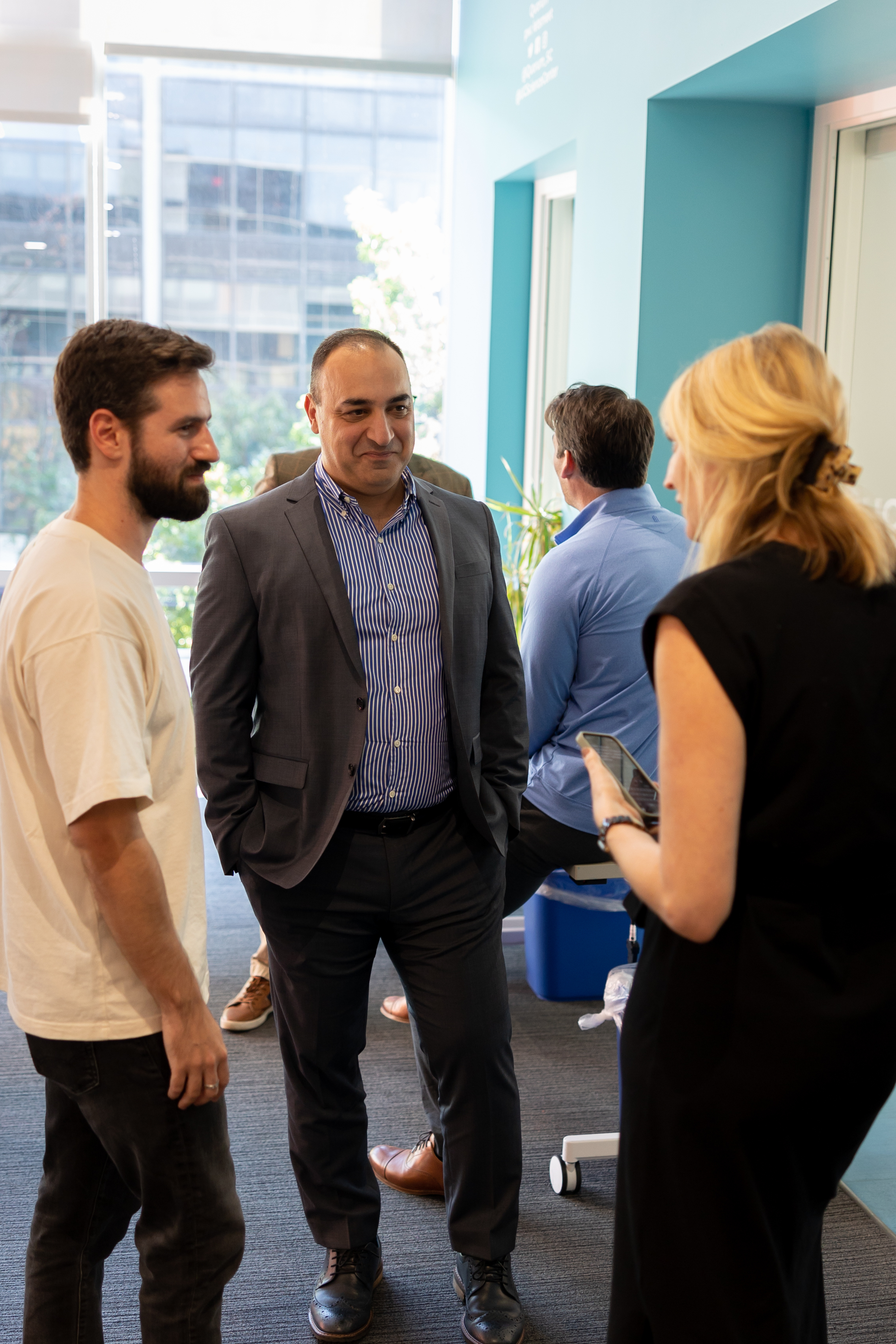
Learn more about the companies:
Atvisor - Aging people and people with disabilities can significantly improve their life by using Assistive Technology (AT). Yet only 10% will benefit from using it due to lack of awareness, funding, leadership, and coaching. Atvisor has developed an AI-based digital health platform that supports assistive technology assessments and the decision-making process. Our AI engine steers users to the optimal product - products they often were unaware that existed- according to their personal abilities, limitations and needs. Our mission is to improve the lives of millions by making Assistive Technologies more accessible and personalized.
Droxi - Primary care physicians spend 2.5-3 hours a day performing exhausting non-patient facing tasks: Patient requests, prior authorizations, prescription refills, and lab results reviews. As a result of the pandemic, this burden keeps increasing, and primary care physicians are busier than ever before, suffering from massive physician burnout. Solution: Droxi's AI tool helps primary care physicians reduce the amount of time spent on non-patient-facing tasks and improve the quality of care by creating a Patient-Specific Storytelling. Physicians no longer have to go through dozens of different tabs and thousands of fields in the medical record. Instead, Droxi identifies and visualizes the most relevant clinical factors for each task so that physicians can cross them off their list quickly.
Innosphere provides a non-invasive electrical brain-stimulation medical device, AI based for treating ADHD without side effects. Our AI algorithm allows to personalize the treatment by tailoring the treatment protocol according to the symptom's severity of each child. Innosphere has achieved excellent results from the clinical trial that we conducted at Hadassah Medical Center in Jerusalem, where we managed to reduce the ADHD symptoms severity by nearly 50% after ten treatment sessions of 20 minutes each, with a long-lasting effect over two months. This clinical trial was led by Prof. Itai Berger from Assuta Medical Center and Prof. Roi Cohen Kadosh from Oxford University in collaboration with Prof. Bruce Wexler from Yale University. The results were published in the prestigious Neurophysiology Journal.
Kai - A VC-backed Mental Health 3.0 venture on a mission to democratize mental health for young people everywhere. The company has grown 30% MoM for the last six months, with over 100K active users. Our growth is led by the community with over 40K members and 1m monthly posts. Founded by repeat entrepreneurs, including two clinical psychologists, Kai has raised $4.1m pre-seed from Rainfall Ventures, Tiferes Ventures, and amazing angels from Google, Twitter, Dropbox, Duolingo & Discord (Bob Meese, Micha Breakstone, Amir Shevat, Gavin Wood, Anjney Midha and others). The intersection between Science and Technology for Kai reflects the Mental Health 3.0 model, which illustrates the white space Kai is in.
NyX is a VC-backed, science-based neuro-tech company that is changing the sleep paradigm. The company is currently developing a sleek, attractive headband that uses sophisticated algorithms and continuous-learning artificial intelligence to personalize a program that trains people's brains for sleep. Based on active and adaptive technology, we offer safe and effective solutions that immediately enhance the natural quality of sleep.
Paragate Medical is addressing one of the greatest unmet needs in healthcare: a solution for chronic fluid-overload heart and kidney failure patients, who are considered the “frequent flyers” of the hospitals. The company develops the IPUD, a fully implantable device that actively prevents fluid accumulation and the resulting need for frequent admissions by continuously and slowly draining systemic excess fluids from the tissues to the urinary system, as a mechanical bypass of the kidneys. This solution is first of its kind to provide a truly out-of-hospital 24/7 treatment.
Profility - Combining EMR summary techniques, sophisticated AI and big data access, Profility helps set the right treatment for the right cost, in the best matched facility. The platform oversees the patient from admission through hospitalization to post-acute care, and the solutions support all the critical decision points in the continuum of care. Profility is a cloud-based platform with multiple solutions, serving all the relevant decision makers – acute teams, post-acute provider teams and the payers. Profility is fully operational, working with leading providers in the US, serving thousands of patients every month.

